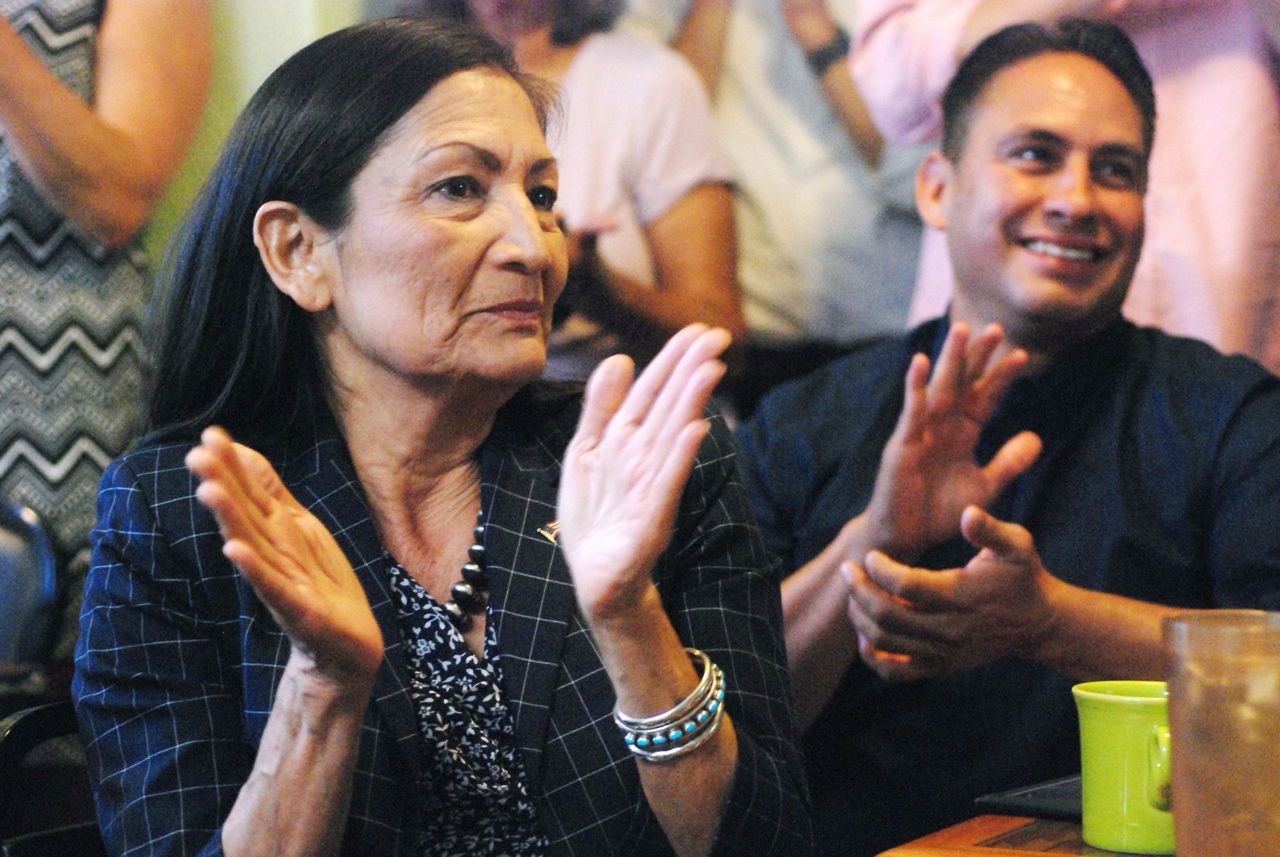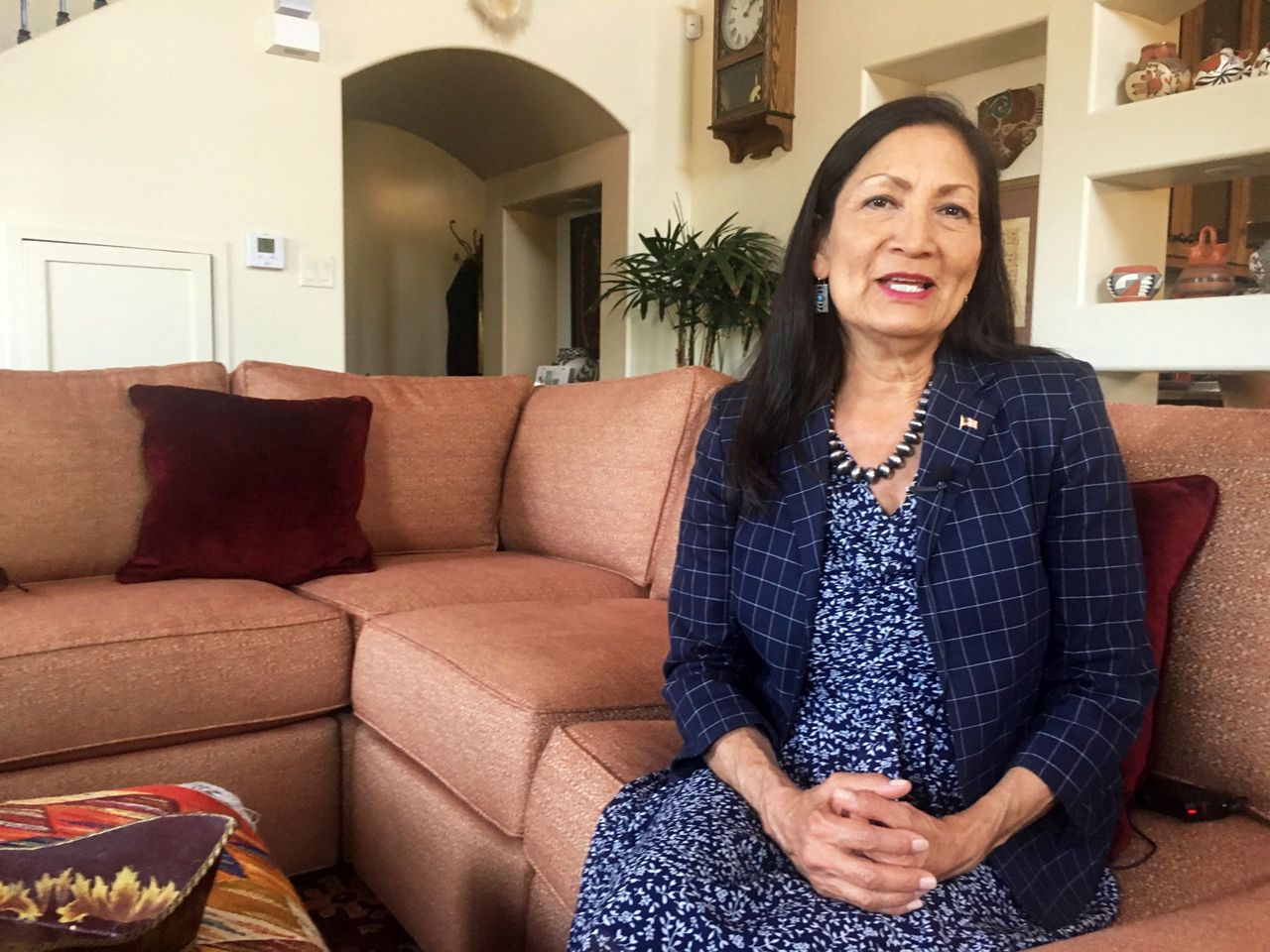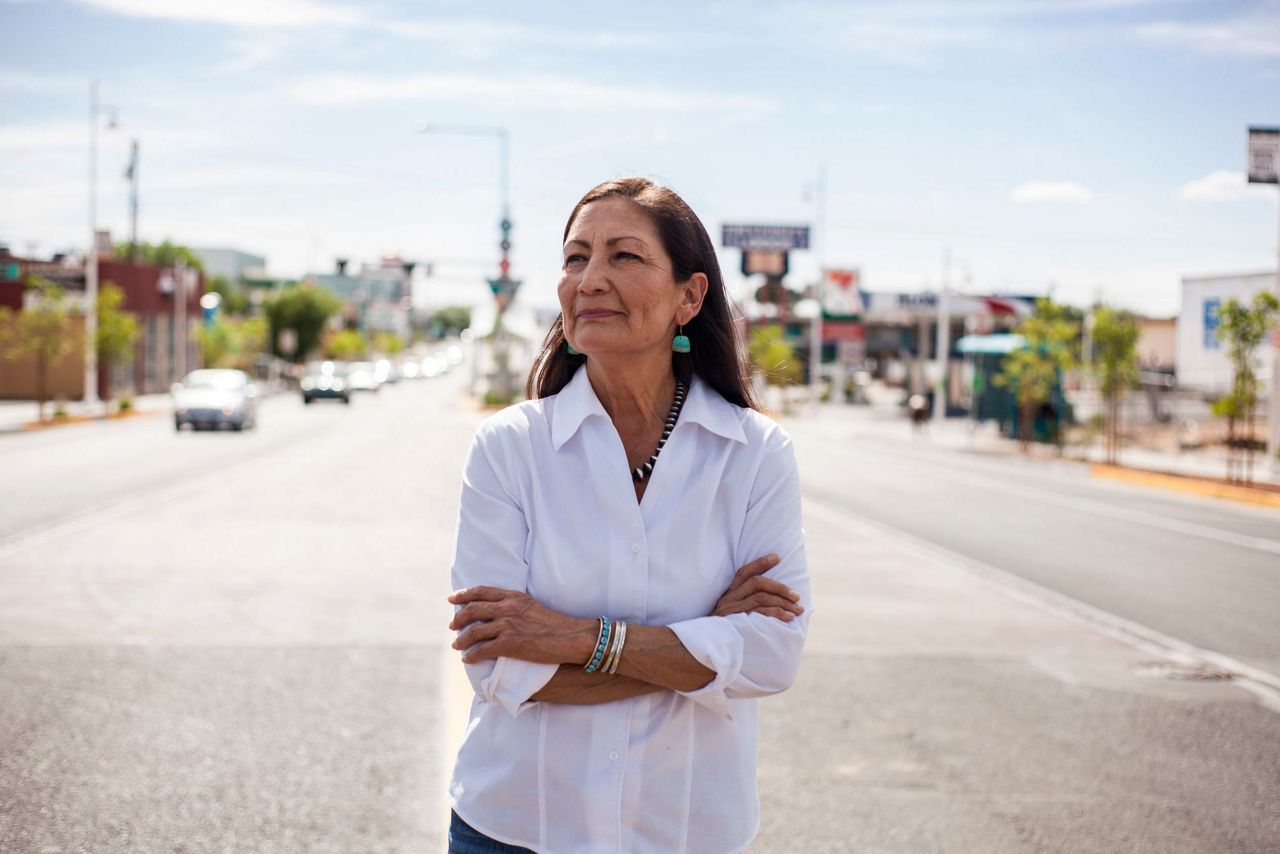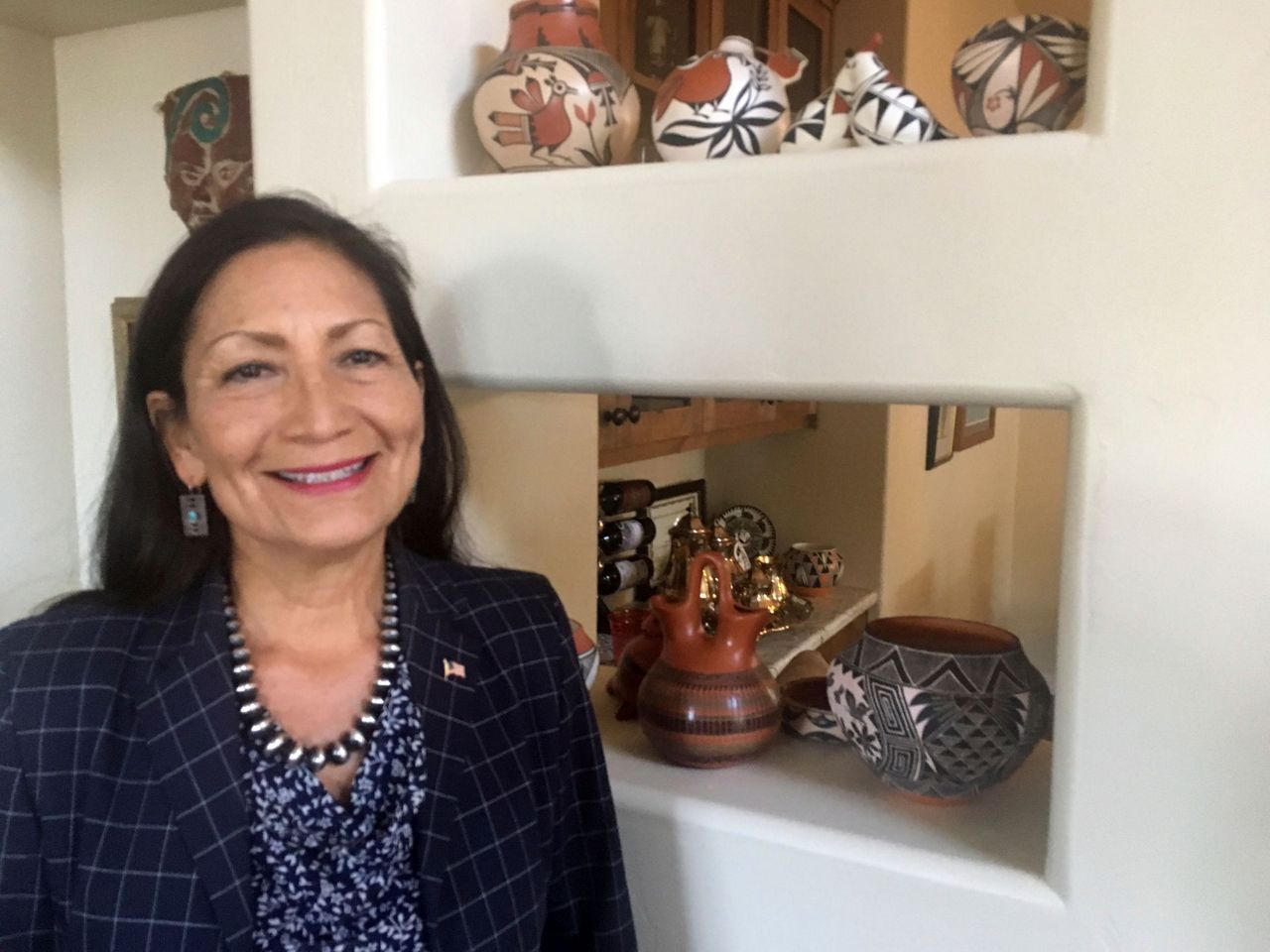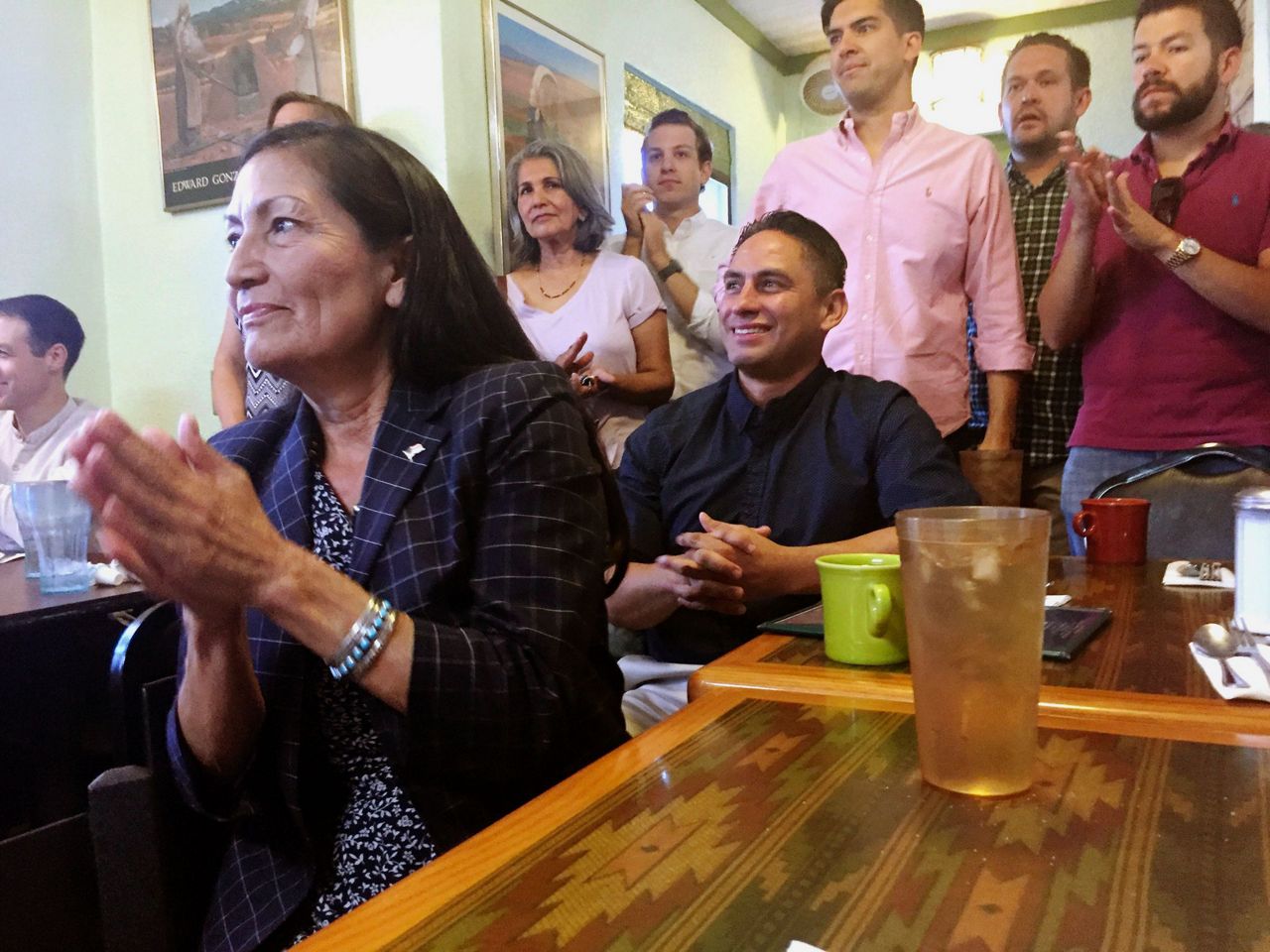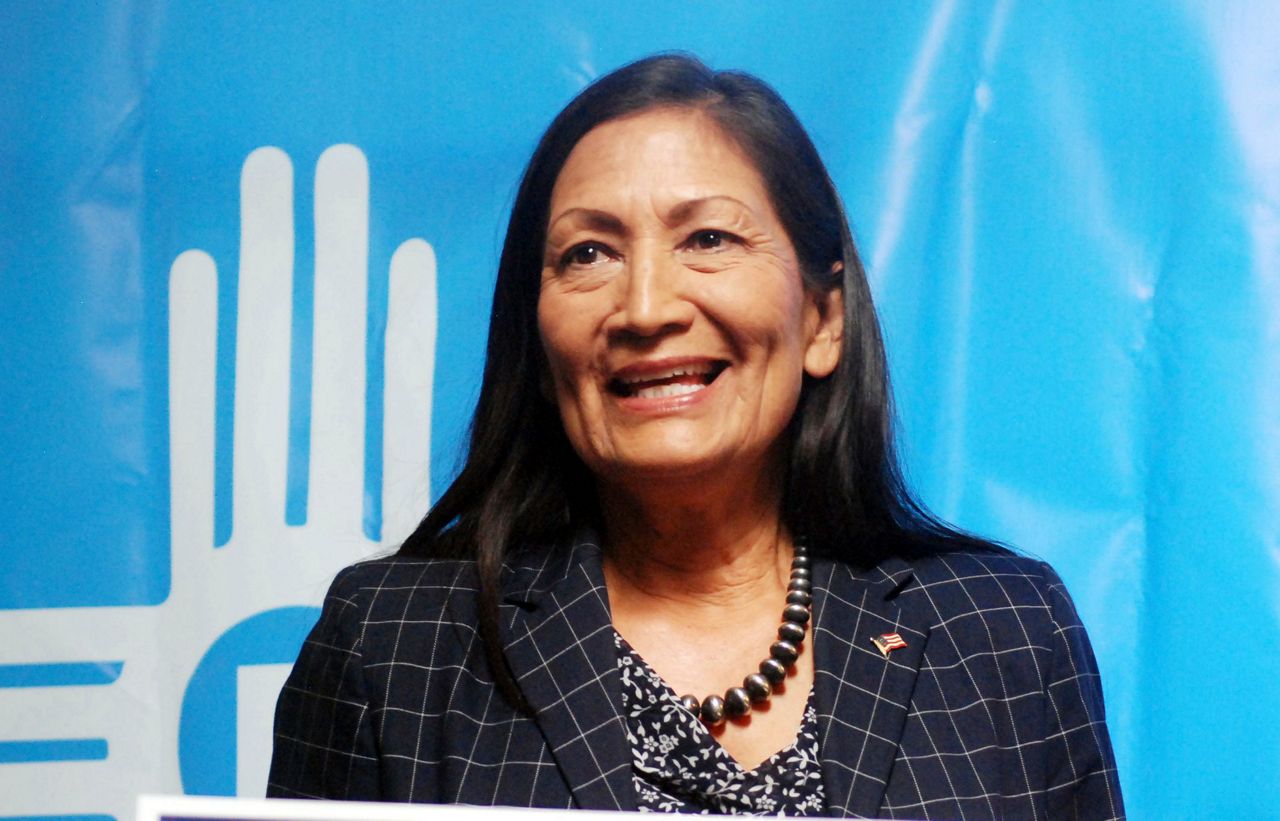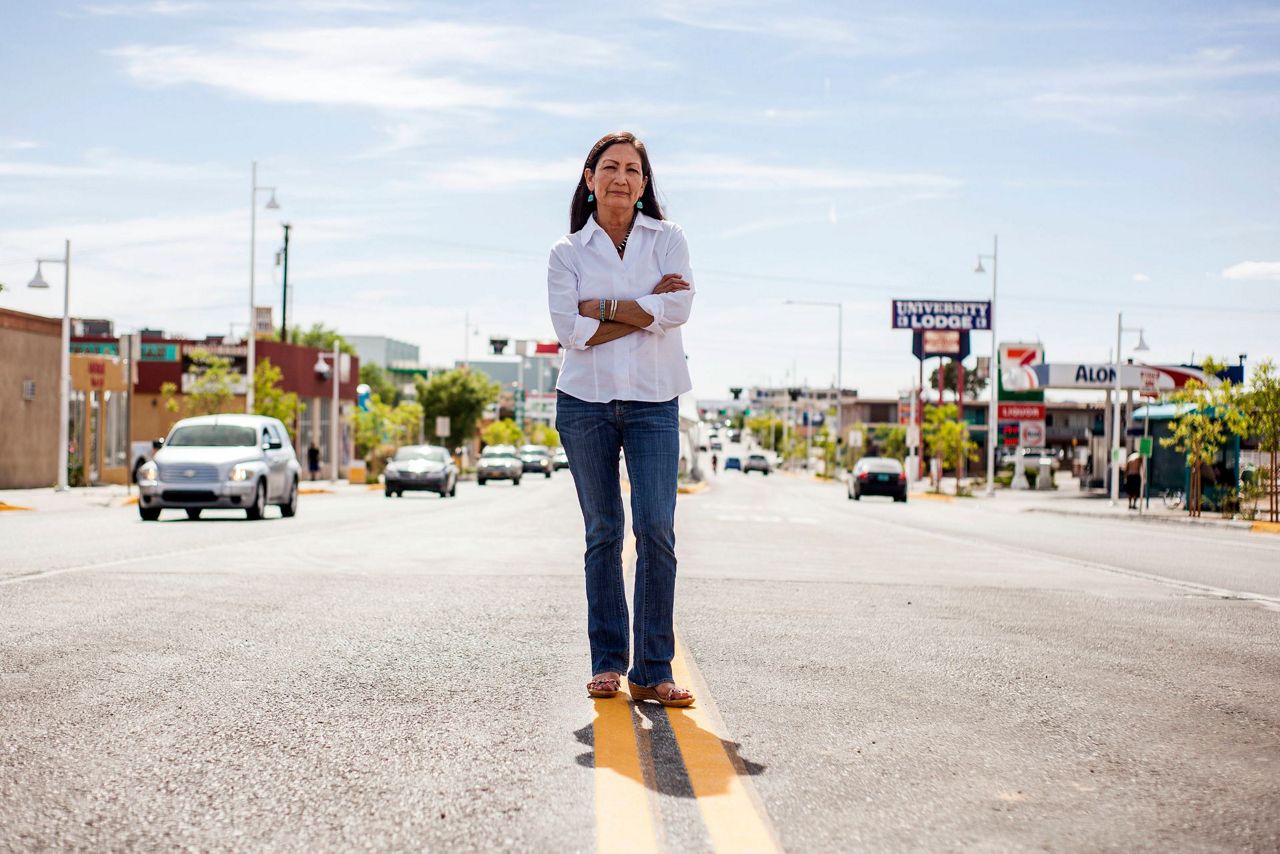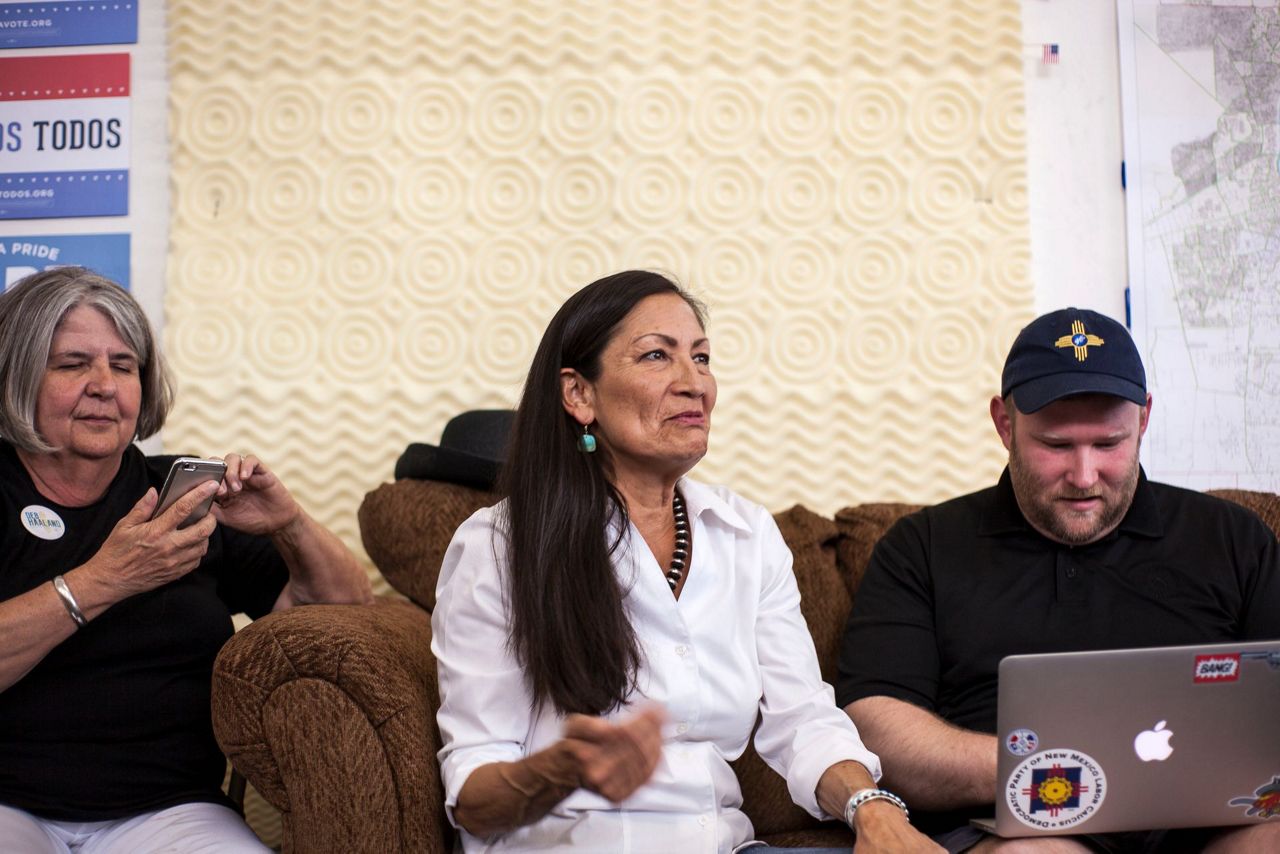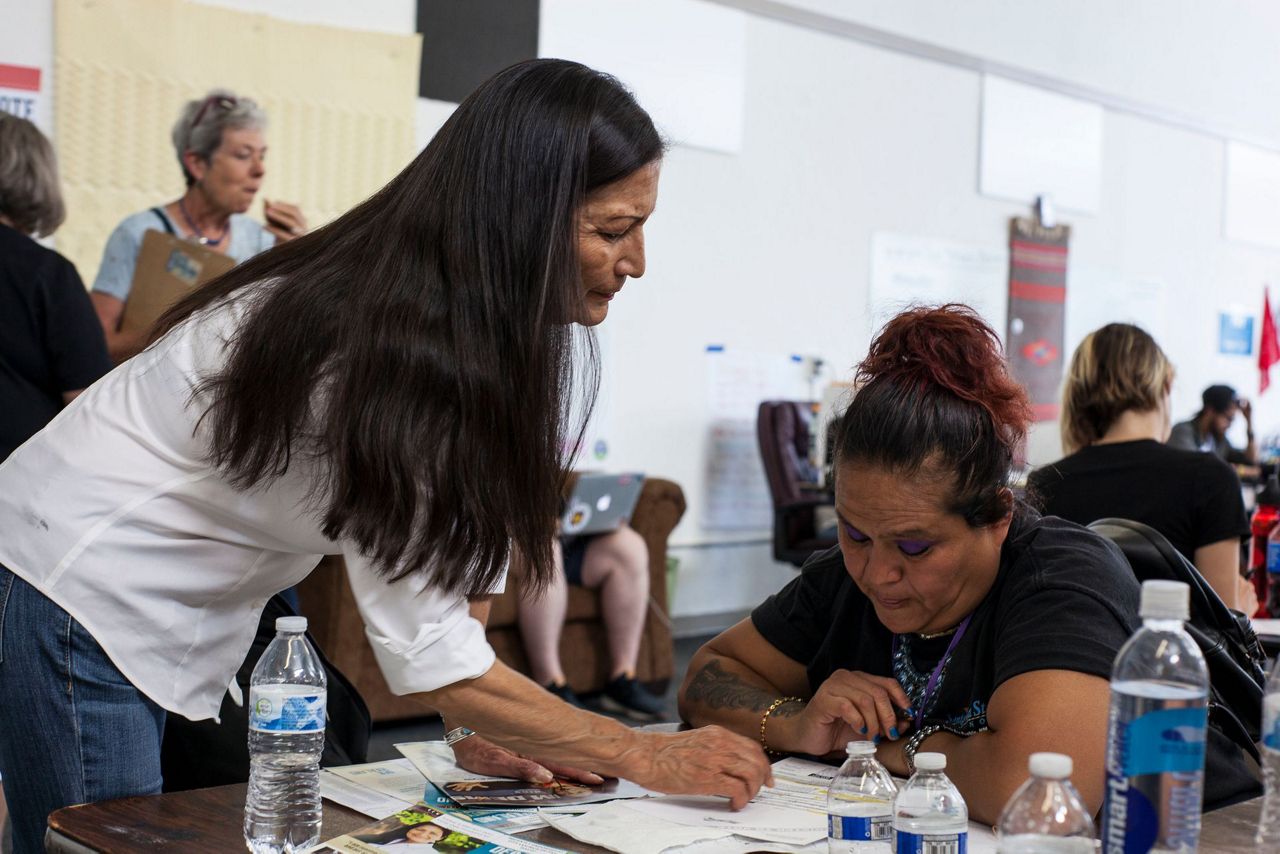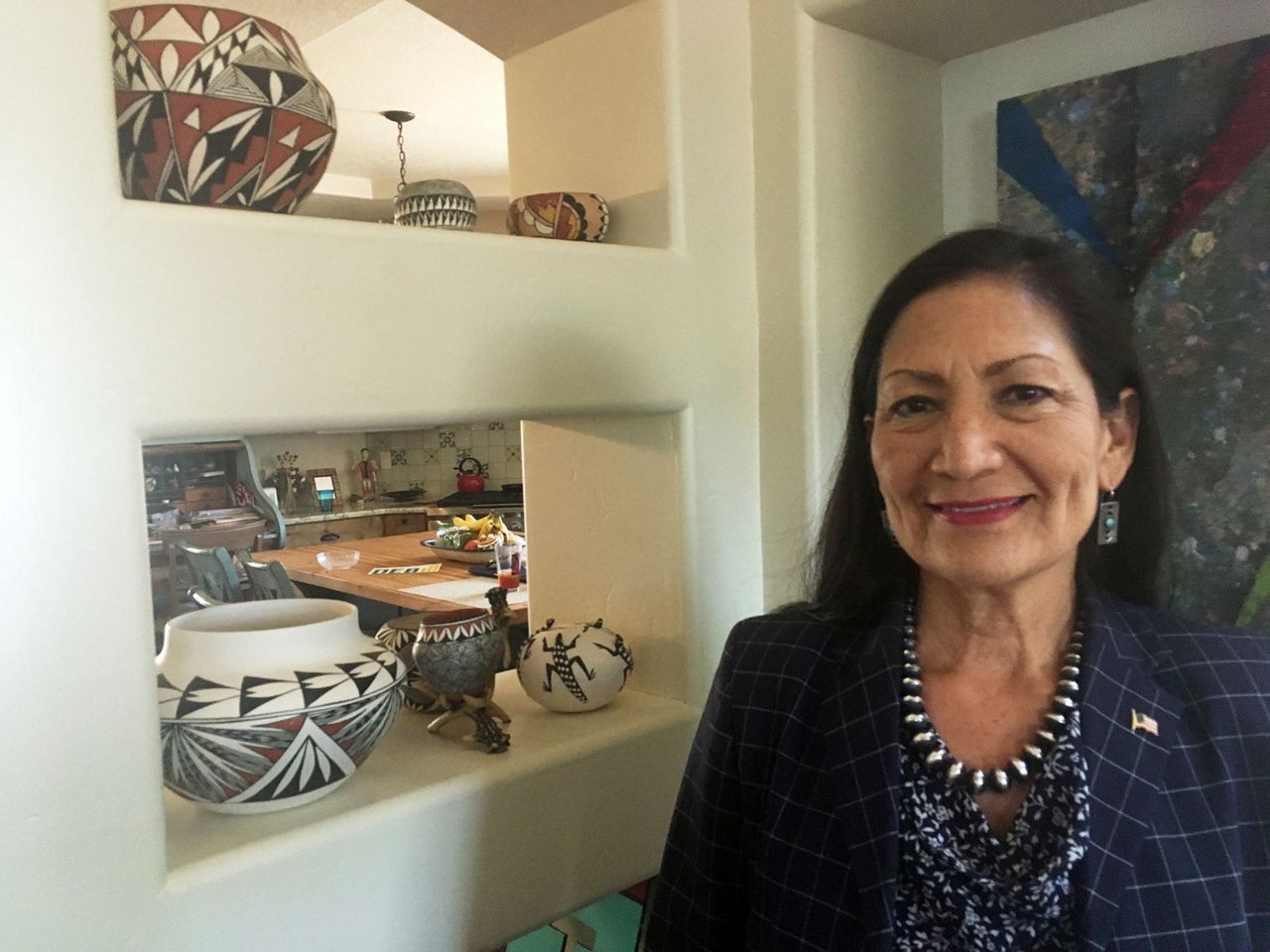ALBUQUERQUE, N.M. (AP) — New Mexico, a state with deep historical ties to American Indians whose images and symbols are rooted in everything from the state flag to town names, has moved closer to electing the first Native American woman to the U.S. House of Representatives.
Deb Haaland's victory Tuesday in a Democratic primary for an open congressional seat encompassing the state's largest city of Albuquerque had Native Americans from Washington state to Oklahoma celebrating the possibility of a landmark in U.S. political history.
Haaland, a tribal member of the Laguna Pueblo who was born in Winslow, Arizona, defeated a crowded field of mainly Hispanic candidates. It came almost 50 years to the day that Robert F. Kennedy won South Dakota's Democratic presidential primary thanks to the Native American vote on the Pine Ridge Indian Reservation.
Haaland told The Associated Press on Wednesday that she credited her victory to the movement of Native American voting that Kennedy sparked and her 15 years working as an organizer registering such voters.
"The Native vote has helped a lot of candidates win. The Native vote can sway a statewide election," she said. "I think if we keep working hard to get out to vote and to stay active, we can have a larger say in our politics."
Haaland faces Republican former state lawmaker Janice Arnold-Jones and Libertarian candidate Lloyd Princeton, both of whom are white, in the general election. Democrats have held the seat in recent years.
News of Haaland's primary victory spread far beyond New Mexico, home to 23 tribes whose population is about 11 percent Native American.
"Her win brings us closer to this historic moment," said Mark Trahant, editor of Indian Country Today website. "Congress has never had a voice like her."
Trahant said Haaland's candidacy also generated excitement in Indian Country as more women of color run for office. Paulette Jordan, a Democratic candidate for governor in Idaho and member of the Coeur d'Alene tribe, came to New Mexico to campaign on Haaland's behalf.
Haaland, 57, also pulled together a multiethnic coalition that sought to work outside the usual white and Hispanic powerbrokers.
She won the support of the Congressional Black Caucus political action committee, and Rep. Gwen Moore, a black Democratic congresswoman from Milwaukee, traveled to Albuquerque this week to stump for her.
In last minute canvassing, Haaland had white teachers, Muslim volunteers and young Latina making last-minute calls on her behalf.
"This is going to be big," Moore told Haaland supporters before Tuesday's election.
Haaland said if she makes it to Congress, she will work to fight poverty in Native American communities and climate change.
Her Republican opponent credited Haaland for being a hard worker and for achieving a political milestone.
"But we've elected people based on their identity and sexual orientation before and what good did that get us?" Arnold-Jones asked.
The Republican said voters in the central New Mexico congressional seat are pragmatic and will be turned off by Haaland's "far left" stances on abortion, immigration and rolling back the state's oil production economy.
"These aren't the issues that will resonate with voters here," Arnold-Jones said. "You can't go into a legislative body and be mad at everyone."
Haaland said she knows what's at stake in the election — for New Mexico voters but also for Native Americans nationwide. That's why she intends to use her biography as a selling point so voters know she's faced adversity.
"Yes, I know what it's like to have to live off food stamps ... yes, I've had my struggle with addiction," Haaland said referring to a bout with alcoholism. "Sadly, that affects our society here in New Mexico."
___
Associated Press writer Russell Contreras is a member of the AP's race and ethnicity team. Follow Contreras on Twitter at http://twitter.com/russcontreras
Copyright 2018 The Associated Press. All rights reserved. This material may not be published, broadcast, rewritten or redistributed.



